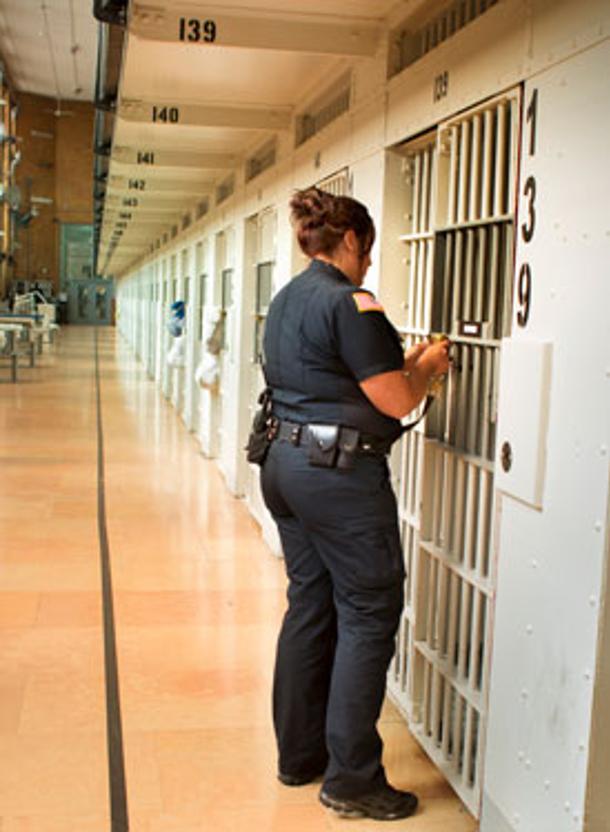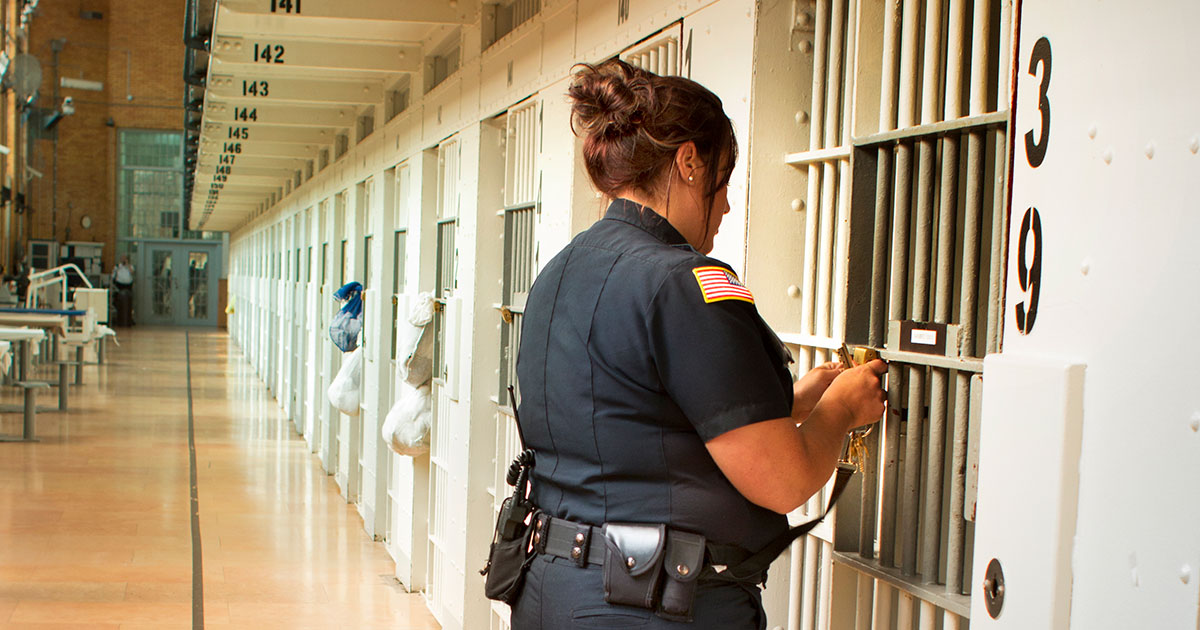
A 20-year-old working her first week as a new Corrections Officer (CO) at the Waupun Correctional Institution (WCI) in Wisconsin survived a violent assault by an inmate serving 40 years for 1st degree attempted intentional homicide. Officers are warning that assaults like this – along with persistent staff shortages – are reaching a crisis level.
“Experienced Corrections Officers say safety has never been worse in our facilities, and appeals to administration leaders have fallen on deaf ears,” said Rick Badger, executive director of AFSCME Council 32. “The large number of assaults on our officers this year is bad enough. I hope something truly horrible doesn’t have to happen before they improve staffing and facility conditions.”
In 2015, the last time numbers were collected, the Wisconsin Department of Corrections reported 291 completed assaults and 70 attempted assaults that involved 442 correctional institution staff members. There were 61 injuries to staff members. Many times these incidents involve overworked CO’s, understaffed facilities and overcrowded prisons.
So what is the reason for the higher numbers of assaults? Most CO’s will tell you it was the passage of Act 10 in 2011. The law virtually stripped away the rights of public employees to bargain collectively for wages, benefits and working conditions.
Since Act 10’s passage, maximum security WCI has reported staff shortages of 70 or more officers at most times, according to CO’s working there.
At maximum security Columbia Correctional Institution (CCI) in Portage, forced overtime required many CO’s to work 16-hour shifts, according to officers who spoke to the Portage Daily Register. Officers also perform their duties shorthanded while the facility houses 281 more prisoners than it was designed to hold, according to its 2015 annual report.
Overcrowding, too, has forced prisoners to double and even triple-up in cells intended for one prisoner, according to reports in the Portage Daily Register.
Such overcrowding and short staffing leads inmates to push boundaries, reported one anonymous corrections officer quoted by the Portage Daily Register, after an assault there. “They’re getting bolder and bolder,” he said. “Something really, really bad is coming.”
Some Corrections staff have called for the revival of security labor/management committees (much like those created under their former collective bargaining agreement) that fairly represent both CO’s and other staff as well as Corrections’ management. These committees could discuss policies and procedures to better ensure officer safety, though Act 10 severely undermined the ability of officers to speak freely and frankly without fear of retaliation. Not surprisingly, employer-appointed safety boards implemented since Act 10 have not found favor with staff, who consider them one-sided and toothless.
Adding more concern to this possible powder keg, since Act 10 a record number of senior rank-and-file staff in corrections decided to retire rather than work dangerous duty where their voices would not be heard and respected by the administration. More than 8 percent of officer and sergeant positions were unfilled in April 2015, reported the Milwaukee Journal Sentinel. That’s four times the rate back in April 2010, before Act 10.
“Act 10 created this crisis,” said AFSCME Council 32’s Badger. “A Wisconsin CO in 2010 earned a fair wage and fair benefits, had a voice in his workplace and considered it a career to be proud of. There was little turnover, professionalism was respected, and assaults were low.
“Today, wages are low and benefits are costly,” he added. “COs have less voice on the job, especially in facilities where the union has little presence and turnover remains high. These institution’s populations continue to grow and overcrowding has become the norm.”
Badger said “it’s no surprise that assaults and understaffing have reached a crisis level.”
Conditions have gotten so bad that even new officers hired after Act 10 are beginning to understand why rebuilding a strong union presence is more important than ever. Council 32’s current organizing push is beginning to show results. The number of AFSCME members is starting to rebound in some of the state’s hardest hit institutions.
